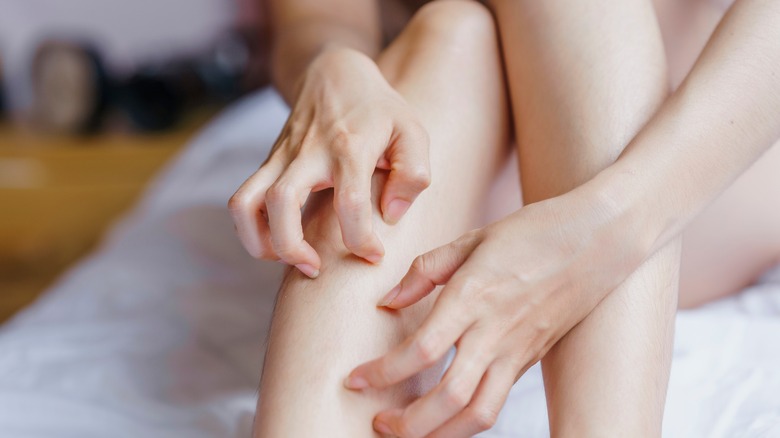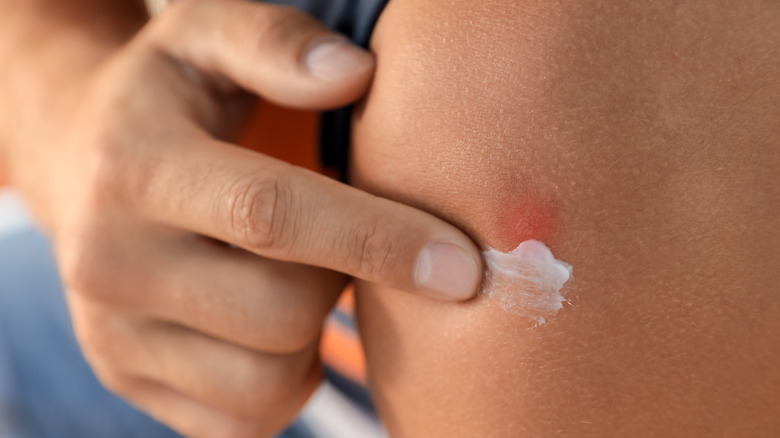How To Tell The Difference Between Bed Bug Bites And Flea Bites
While bed bugs and fleas are both small in size, can leave behind bites, and are always in search of a host for their next meal, these insects do have marked differences (via MedicineNet). Each of these bugs can be quite the pest, but here's how to tell them apart if you start to notice the emergence of bug bites on the surface of your skin.
Since bed bugs don't carry disease, their bites are generally not considered a serious risk to our health. Usually found in highly populated places, such as hotels, nursing homes, or cohousing, bed bugs seek an easy gateway to humans, and therefore, enjoy setting up camp in our bedding (via Medical News Today). For this reason, bed bug bites are often found on areas of the body left exposed to the elements while we snooze, such as the legs or arms (per MedicineNet).
You can identify bed bug bites by their pattern, as they often develop in the shape of a line, cluster, or zig-zag. Each individual bite appears as a small, red bump with a darker red spot at the center (via Healthline). However, the itchiness of a bed bug bite doesn't always set in right away. As they bite, bed bugs also release an anesthetic, making you numb to the bite as it occurs (per MedicineNet).
How to treat bed bug and flea bites
Just like bed bug bites, flea bites also have a distinct pattern. Deemed the "breakfast, lunch, dinner" pattern, flea bites often emerge in groups of three, explains MedicineNet. Able to lay their eggs in carpets and fabric furniture, flea bites are common on ankles and feet. Additionally, just as bed bugs leave behind an anesthetic as they bite, fleas also leave a little something behind — feces. Yes, along with those small, itchy, raised bumps, comes bacteria. For this reason, it's important to refrain from scratching flea bites in order to reduce the chances of spreading possible infection.
When it comes to treatment, you'll want to clean flea bites with soap and warm water, advises Healthline. From there on out, treatment for bed bug bites and flea bites looks fairly similar. Anti-itch creams can be used to help alleviate symptoms. For those who are allergic, an antihistamine may also be necessary. If bug bites do not improve or show signs of infection, be sure to contact your physician who can prescribe antibiotics if needed.
Routine vacuuming of rugs and furniture, regular carpet cleanings, and utilizing flea collars for pets can all help keep fleas out of your home. Regular vacuuming can also help rid your home of bed bugs, as well as running your bedding through a hot washer and dryer. Professional pest control treatments can also help do away with bed bugs and any other pesky insects.


